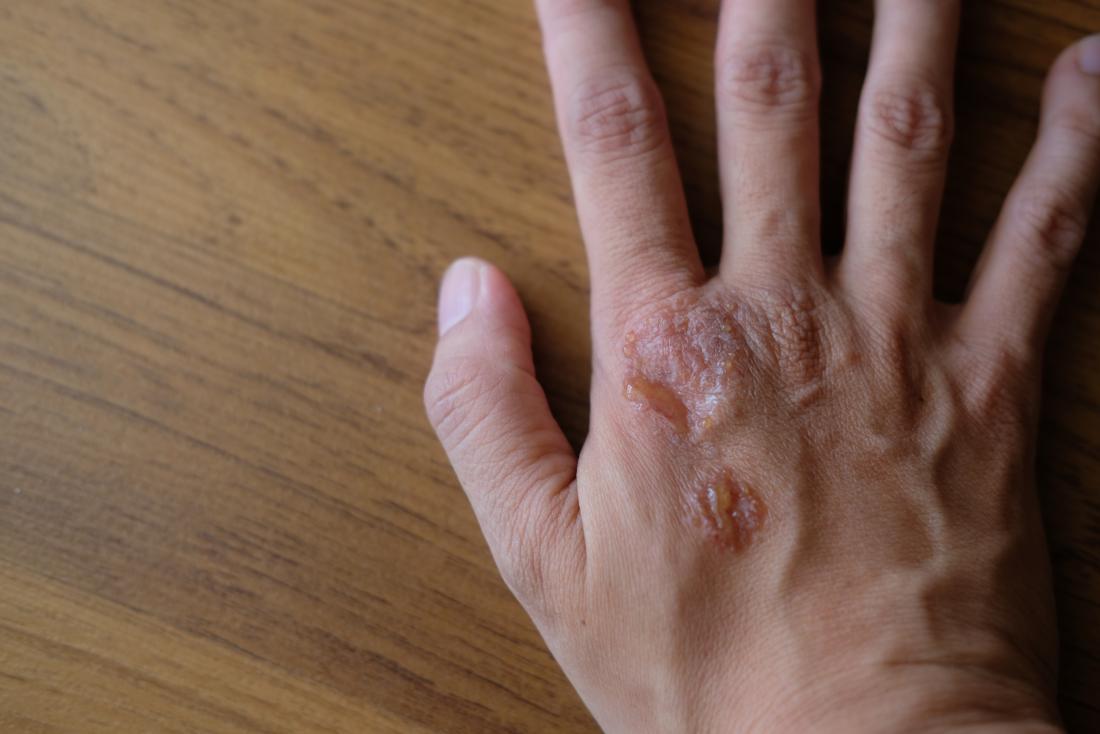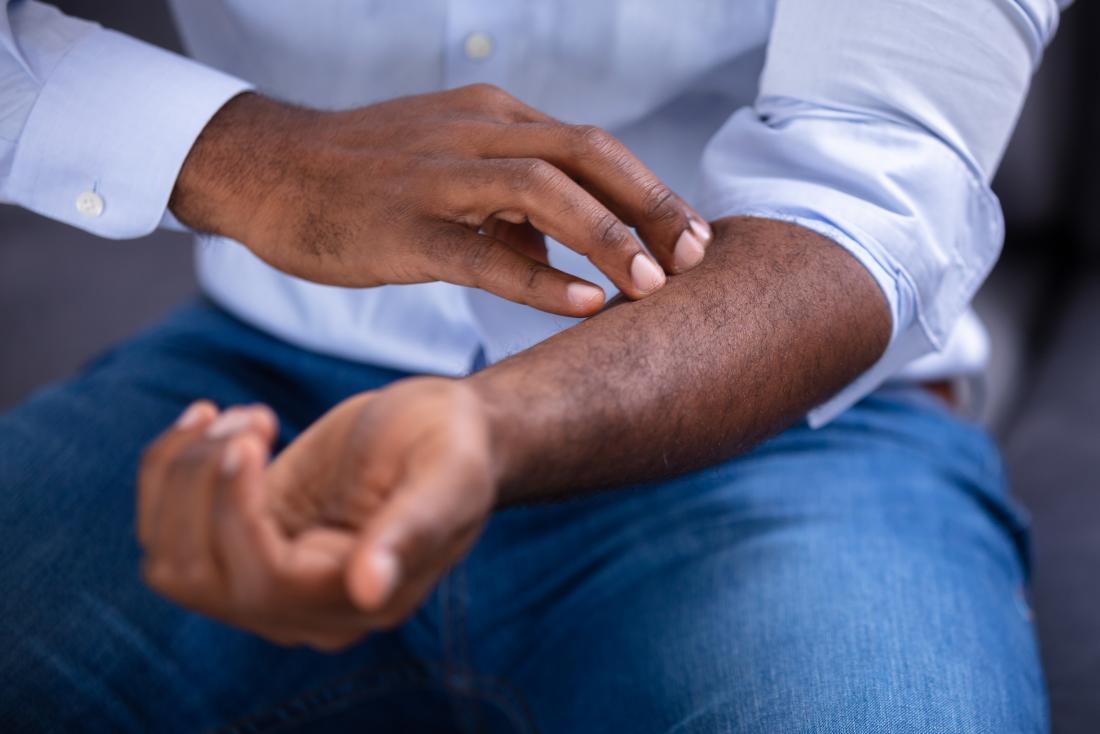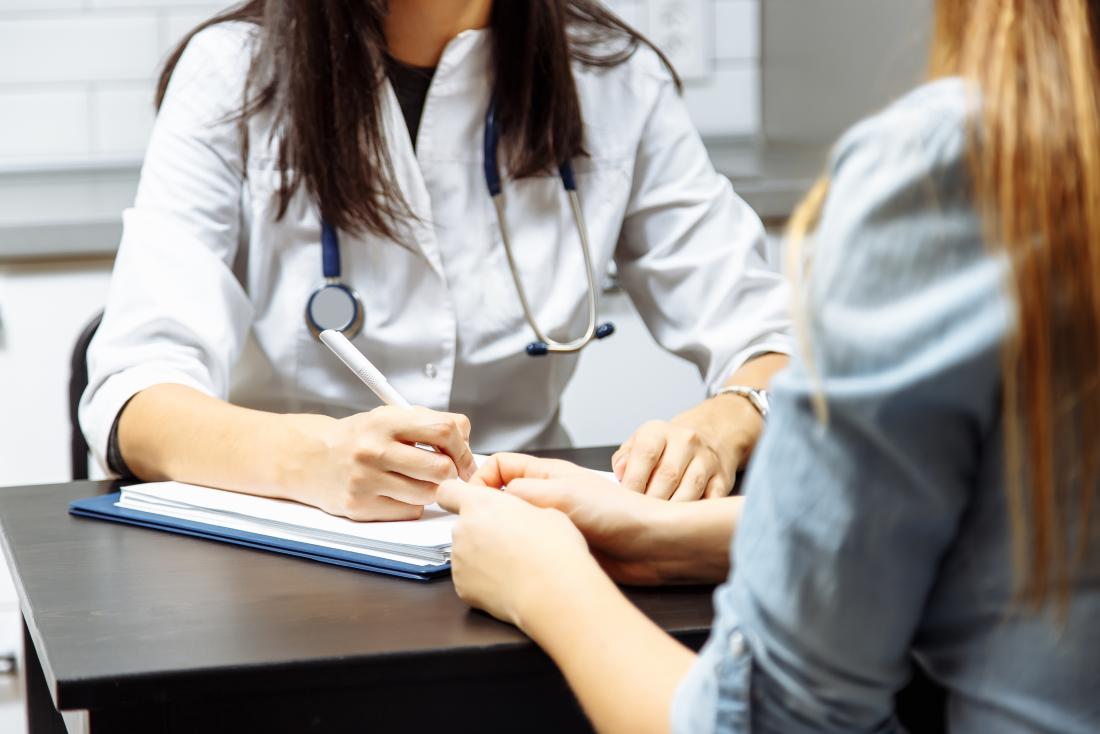Psoriasis affects an estimated 1 to 3 percent of people with HIV. Psoriasis symptoms can present in the early or late stages of HIV.
Both HIV and psoriasis respond to medications, although having both conditions together can make psoriasis treatment more challenging.
In this article, we examine the link between psoriasis and HIV, and we outline the treatments available for people with HIV-associated psoriasis.
The link between psoriasis and HIV

People who take antiretroviral medications may develop psoriasis.
Advances in HIV treatment, which doctors call antiretroviral therapy, now mean that most people with the virus have life expectancies similar to that of the general population.
However, people with HIV are still more susceptible to developing other illnesses and infections.
Doctors refer to these other conditions as opportunistic infections (OIs).
After they begin taking antiretroviral medications, people may develop inflammatory conditions, such as psoriasis.
Doctors call this type of condition an immune reconstitution inflammatory response (IRIS).
IRIS can affect up to 20 percent of people when they begin antiretroviral therapy.
In the case of psoriasis, strong antiretroviral therapy, and the underlying weakened immune system that HIV causes can sometimes complicate its treatment.
In other cases, antiretroviral therapy can instead improve psoriasis symptoms.
People may also experience skin problems as a general side effect of some HIV medications.
Antiretroviral therapy for psoriasis
In many cases, the medications used to treat HIV can also ease psoriasis symptoms.
According to research published in the journal Lancet Infectious Diseases, most people with HIV and psoriasis will see improvements in their skin symptoms thanks to antiretroviral therapy.
Antiretroviral therapy is crucial for everyone with HIV. The treatment can:
- reduce HIV symptoms
- minimize the risk of OIs and other complications
- slow the progression of the virus
- prevent the virus from being transmitted to other people
Once the levels of the virus in a person’s blood become undetectable in tests, HIV is untransmittable through sexual contact.
Treating psoriasis when you have HIV
Managing psoriasis in people with HIV can be challenging for healthcare professionals.
This is because some of the treatments for severe psoriasis, known as systemic treatments, suppress the immune system.
Anything that suppresses the immune system is not optimal for people who have HIV.
HIV already suppresses their immune system and makes them more likely to experience infections.
However, a 2018 review of existing research on HIV and psoriasis reports that some people can receive systemic treatments, such as:
Systemic treatments are not suitable for everyone, however. Each person will need to work with their healthcare professional to find the best treatment plan for their situation.
Preventing psoriasis when you have HIV

Psoriasis triggers can include smoking, food allergies, heavy alcohol use, and stress.
People cannot prevent psoriasis from occurring, but they can prevent psoriasis flares by avoiding triggers.
Scientists do not fully understand why people develop psoriasis. While at least 10 percent of people may have genes that make psoriasis more likely, only 2 to 3 percent actually develop the skin condition. Specific triggers may activate psoriasis in those with the psoriasis-causing genes.
Reducing exposure to these triggers may cut the risk of psoriasis in some individuals, although there is no way to be sure.
In those who already have psoriasis, avoiding triggers can reduce the number and severity of flares.
Psoriasis triggers may include:
- food allergies
- heavy alcohol use
- infections that weaken the immune system, including strep throat, bronchitis, and tonsillitis
- nutrient deficiencies, such as vitamin D deficiency
- skin damage, such as from bug bites, sunburn, or picking at the skin
- smoking
- stress and anxiety
- use of specific medications, including drugs for malaria, high blood pressure, and bipolar disorder
- changes in the weather
Psoriasis symptoms and treatment
Psoriasis symptoms vary from person to person and depend on the type of psoriasis they have. Psoriasis typically causes:
- red patches with silvery scales
- dry skin
- skin that cracks and bleeds
- itching
- pain
- thick nails or nails that develop ridges
In addition to skin symptoms, some people with psoriasis develop swollen, painful joints.
When this form of psoriasis-related arthritis occurs, doctors refer to it as psoriatic arthritis. It affects approximately 30 percent of people with psoriasis.
Psoriasis signs and symptoms may flare up for several weeks or months at a time before improving or going away for a period, which is known as remission.
Is psoriasis contagious?
Psoriasis is not contagious. People cannot contract psoriasis by touching someone with the condition or by using their towels or personal care items.
Psoriasis is an autoimmune condition. That means it arises when the immune system mistakenly attacks the skin cells. The body then begins to speed up the rate at which new skin cells form, which causes the scales and patches that characterize psoriasis.
General psoriasis treatments
The first and second line treatments for psoriasis, which may also be beneficial for people with HIV-associated psoriasis, include:
Topical treatments

Some topical treatments may require a prescription.
Skin creams and ointments can be effective for mild to moderate cases of psoriasis. Some are available over the counter, while others may require a prescription. Options include:
- antibacterial soaps
- calcineurin inhibitors for inflammation
- coal tar
- corticosteroid creams
- moisturizing lotions
- salicylic acid
- synthetic vitamin D creams
- topical retinoid medications
Phototherapy
This form of light therapy uses ultraviolet (UV) light to reduce lesions. Phototherapy can cause side effects that include dry skin and nausea.
Lifestyle changes and home remedies
In addition to avoiding psoriasis triggers, the following may reduce psoriasis symptoms and alleviate discomfort:
Other skin conditions that relate to HIV
Several other skin conditions are common in people with HIV. These are often types of OIs and include:
- Candidiasis: A fungal infection of the skin, nails, and mucous membranes.
- Cryptococcosis: A fungal infection that may affect the skin, bones, lungs, and urinary tract.
- Herpes simplex (HSV): A virus that causes recurrent sores around the mouth or genitals.
- Molluscum contagiosum: A contagious viral infection that causes flesh-colored bumps on the skin.
- Photodermatitis: An inflammatory condition where sun exposure causes rashes, blisters, or scaly skin.
- Prurigo nodularis: A condition that causes itchy, crusty lumps on the arms and legs.
- Kaposi’s sarcoma: A cancer that appears as purple or black skin lesions due to tumors in the blood vessels.
Takeaway
Psoriasis and other skin conditions are common among people with HIV. With proper care and treatment, people can manage their skin symptoms and reduce their discomfort.
Although HIV can make it more challenging to treat psoriasis, research indicates that most people will see improvements after using antiretroviral therapies. Home remedies, medicated creams, and lifestyle changes can also ease symptoms.
In some cases, a healthcare professional may recommend systemic medications, but this is not appropriate in all cases.
Anyone who has concerns about their skin should see their healthcare provider for an evaluation and diagnosis. Early intervention may improve the outlook and reduce the risk of complications.
